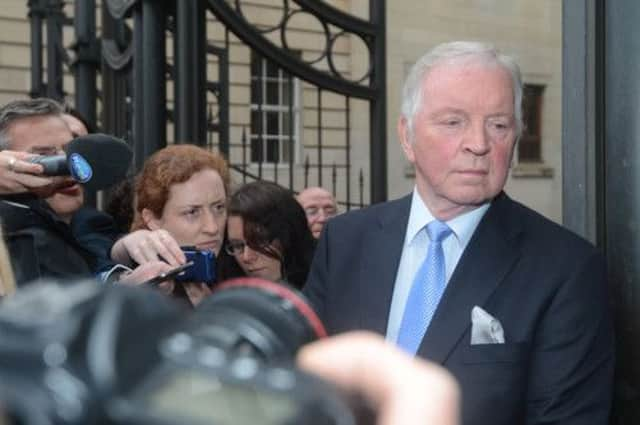Leaders: Dunfermline offers positive change


This is welcome news. In the wake of the conviction of former MSP Bill Walker for assaulting three ex-wives and a stepdaughter, this newspaper recently made a strong case for having a woman-hater replaced at Holyrood by a woman. It would, we argued, carry a strong symbolic message and draw an appropriate line under this saga.
None of the three women selected so far were chosen as a result of their parties drawing up an all-women short list. Which goes to show that a desirable outcome in improving the representation of women in politics can be achieved without having to resort to methods of positive discrimination.
Advertisement
Hide AdAdvertisement
Hide AdThere can be no doubt that women are under-represented in both Holyrood and Westminster parliaments, as well as in public life in general.
Despite the fact that two of Holyrood’s political parties – Conservatives and Labour – are led by women, and despite the fact that women are among the most compelling voices in Scottish politics, the fact remains that the Scottish Parliament benches are mostly filled by men.
Each of Scotland’s political parties needs to challenge this by encouraging the recruitment and training of promising women, and to provide support through selection procedures.
But it crosses a line when an organisation – any organisation – chooses to ignore the merits of people of one gender and instead chooses only to select from people of the opposite gender. There is a problem with positive discrimination, and the clue is in the name – however well-intentioned, it is still discrimination. Some parties have tried to finesse this. In the past, Scottish Labour has explored the “twinning” of seats of equal winnability and imposing an all-women shortlist on one of them. There have also been moves towards the “zipping” of candidates on regional lists so that every other person on that list was a woman.
While these are imaginative methods, they still do not avoid the immutable problem that some candidates are being chosen or rejected not on personal merit, but on the presence or otherwise of a Y chromosome.
What this results in, inevitably, is a feeling of having been wronged among certain men (and their female supporters), who feel they have been deprived of an opportunity to serve as a parliamentarian simply by virtue of their gender.
But the real point is that if the aim is a discrimination-free society, as it should be, using discrimination as a means to that end is surely the wrong way to go about it. If more female representation can be achieved without positive discrimination – as seems to be the case in Dunfermline – then that is a much preferable route.
A remarkable act of forgiveness
There can be no loss as painful or as deeply scarring as the loss of a child. So, for a bereaved parent to hold out a hand to a man associated with their son’s killers is a remarkable triumph of the human spirit.
Advertisement
Hide AdAdvertisement
Hide AdAs we report today, that is what Colin Parry has done in inviting Northern Ireland’s deputy first minister, Martin McGuinness, to give a peace lecture in Warrington.
Tim Parry, 12, and Johnathan Ball, three, died in March 1993 after IRA bombs exploded in rubbish bins in Warrington town centre. It was one of the most shocking mainland UK attacks of the Troubles. Mr McGuinness is a former IRA commander.
It is an error to mistake such gestures as necessarily being acts of forgiveness. Some victims of crime can find it within themselves to forgive; the reserves of magnanimity required to do this are hard to imagine. Others simply cannot get to the stage of saying “I forgive you”. Who, realistically, can blame them?
What Mr Parry has done is to take a devastating life experience and endeavour, through hard work and a deep personal commitment, to try to shape something positive out of something grotesque. He helped found The Tim Parry and Johnathan Ball Foundation For Peace, and has worked tirelessly to promote reconciliation between warring communities.
In doing so, he has found it within himself to meet a
man who was once a commander in an organisation which, through indiscriminate use of deadly violence, claimed the life of his son.
It takes a remarkable kind of person to do something of this sort. Mr Parry has our respect, and admiration.